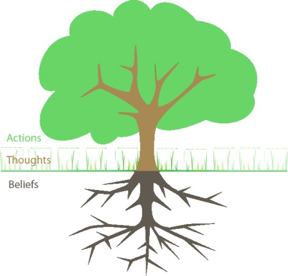Lifelong Learning - Final Philosophy

Learning Outcomes
Upon completion of this lesson's material, students will be able
- Develop a final teaching philosophy.
- Define themselves as an early childhood educator.
- Explain the importance of lifelong learning.
Teaching
Sure, college teaches you the skills you need to get in the door, but what about a few years from now when policies are updated and new research starts to surface? What about the unspoken skills that aren’t taught while you are in school?
In today’s world, schooling is not the only method of learning that gets you ahead. Personal skills and knowledge requires updating to keep up with society. Technology, for example, has taken over several aspects of our lives. Long gone are the times when we can fill out applications by hand because many companies require you to fill it out online now. Cell phones are almost a necessity and snail mail is almost non-existent for regular correspondence. Not only do we need to keep up with society but studies show that lifelong learning helps us to create inquisition, find meaning in our lives, increase wisdom and make new friends!
Lifelong learning means exactly as it states; learning is as long as life. For Early Childhood Education specifically, I want you to take a moment and think about how each of the following has changed and evolved in the education field
- Curriculum
- Policy
- Teacher education requirements
- Health and nutrition
- Disabilities
- Diversity
- Parenting skills
- Technology
- Testing
- Mental health needs of children
- Mental health needs of families
- Mental health needs of ourselves!
Can you add to the list? Each one of those bullets has changed drastically just in the past five years, let alone the past fifty! If educators were not invested in lifelong learning, can you imagine what kind of care and education teachers would be giving children today?
It is crucial to our profession that we continue our learning so that we can enhance our abilities and transform the way we educate to aid in the success of our children. We must constantly reflect and ask ourselves: Is what I am doing beneficial to the children? How can I do better? What else do I need to know to give these children the best chance possible?
As you write your final philosophy, consider your stance on what you know and what kind of educator that makes you. Are you always going to teach that way or will you learn more and continually improve? Are you closing the door on knowledge or will you keep it open so you can grow professionally? What do you feel most passionate about and what is your plan for continued professional development?
Assessment
Lifelong Learning Assignment
Final Education Philosophy Statement
Pull out your draft philosophy statement from Practicum II. As you read it over ask yourself these questions:
- Do you still BELIEVE in that statement?
- How has it grown or changed?
- How can you refine that statement to reflect your thoughts now?
- Do you have additional thoughts that you left out that you want to be sure you left in there?
- Does your statement reflect your beliefs about you as a future educator? How does lifelong learning play a role in that?
Now I want you to “professionalize” your philosophy statement. Read it out loud and have others read it to you. Does it make sense? Does it say everything you want it to? If a potential employer were to read this, would they hire you on the spot?
Submit your final philosophy statement into the drop box and be sure to print it out for your professional portfolio!
Introduction
|
0 Points Did not provide an introduction |
5 Points Introduction was brief and somewhat related to the body |
10 Points Introduction provided a clear strong statement that encompasses the beliefs laid out in the body |
Body
|
0 Points Did not provide a body |
5 Points Body identified some value and beliefs that somewhat related to the introduction |
10 Points Body defined values and beliefs that were related to the introduction |
Conclusion
|
0 Points Did not provide a conclusion |
5 Points Conclusion was loosely tied to the statement and somewhat summarized main thoughts |
10 Points Conclusion was solid, revisited the statement and summarized main thoughts |
I believe Statements |
0 Points Was not written in first person and did not contain I believe or I will statements |
7 Points Philosophy sometimes was written in first person and contained a few I believe / I will statements |
15 Points Philosophy is written in the first person and contains I believe / I will statements |
Personal |
0 Points Philosophy was not personal or tied to personal beliefs |
7 Points Philosophy was somewhat related to personal beliefs |
15 Points Philosophy is related to personal beliefs |
Brief, specific examples |
0 Points Did not provide any examples |
7 Points Philosophy contains unclear examples that are loosely related to the philosophy |
15 Points Philosophy contains brief yet specific examples |
Individual strengths |
0 Points Did not provide individual strengths |
7 Points Philosophy somewhat displays individual strengths |
15 Points Philosophy showcases individual strengths |
Professional growth and lifelong learning |
0 Points Did not provide explanation |
5 Points Provided unclear, brief details of professional growth and lifelong learning |
10 Points Provided clear, solid details of professional growth and stance on lifelong learning |